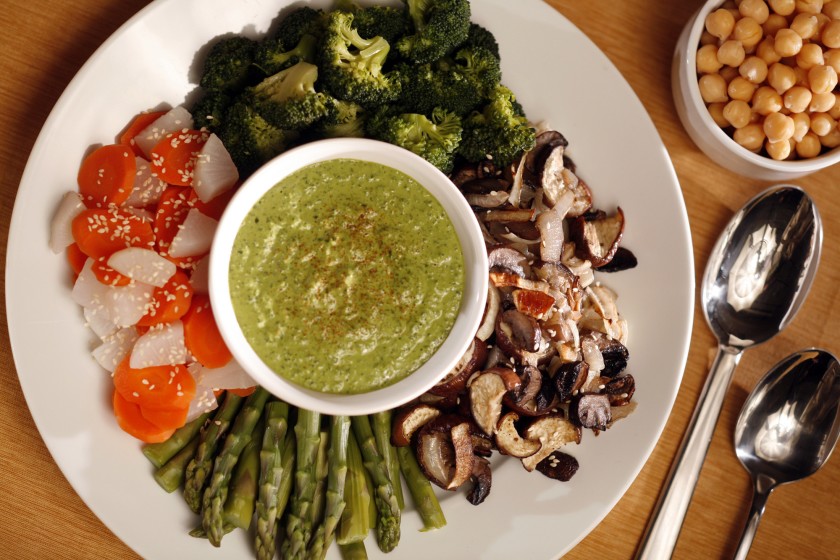
Veganism is the practice of abstaining from the use of animal products, particularly in diet, and an associated philosophy that rejects the commodity status of animals. A follower of the diet or philosophy is known as a vegan.
A vegan diet is thus, a part of lifestyle that excludes the consumption or use of any products made from animal. Vegans do not eat animal products including honey, gelatine, or dairy. They will not use clothes, soaps or other products that are animal-sourced in any way. Veganism is now mainstream and its adoption by a greater number of people has been fuelled by top-rated celebrities.
This is not a brand-new way of eating as many cultures have followed a vegan or vegetarian diet from many years. However, recent documentaries, social media influencers and marketing campaigns have made this diet more popular than ever, so much so that it has become to tickle into the world of fitness as well.
Fitness influencers are promoting the vegan diet as health fortifying, muscle building, strength-enhancing nutritional strategy. It is truth, how more or less universally acknowledged, that a plant-based diet can do wonders for both your health and health of the planet. But many vegan social media influencers make it seem as though the fit vegan life is super easy to follow. The opposite is true for general population who have to spend the good amount of time researching and shopping for all the necessary foods to support this lifestyle.
The reason that many people may struggle to maintain a vegan diet is the difficulty that it presents for getting the right nutrients to support optimal human function. Animal products are important sources of complete proteins, essential fatty acids, vitamins like B-12 and D and many other minerals. Many vegan sources such as beans, peas, nuts and seeds are incomplete proteins. But this does not mean they are useless. We need to combine complementary proteins throughout the day (such as grains and legumes together) to optimize their usefulness. Plant-based diet will afford you with vitamins, minerals, nutrients and fibre that are needed in a healthy diet. However, obtaining the ideal amount of protein while staying within caloric confines may prove tricky as vegan diets lack lean protein sources.
Well planned vegan diets are regarded as appropriate for all stages of life by the American Academy of Nutrition and Dietetics, Dietitians of Canada, the Australian National Health and Medical Research Council, New Zealand Ministry of Health and British Dietetics Association.
However, the German Society for Nutrition does not recommend vegan diets for children or adolescents, or during pregnancy and breastfeeding.
Clinical researches show that a well-planned vegan diet can lower the risk of type 2 diabetes, hypertension, obesity, and ischemic heart disease, But on the other hand, if poorly planned, an unbalanced vegan diet may lead to nutritional deficiencies that nullify any beneficial effects and may cause serious health issues.
Pros of Vegan Diets
1. Promotes weight loss: One of the immediate results of adopting a vegan diet is weight loss. A vegan diet is much lower in calories than even a vegetarian diet because in addition to knocking out the meats, you are also knocking out the high-fat dairy products.
In 2018, a limited 16-week clinical trial found that a vegan diet proved to be superior to a control diet (that included animal protein) in improving body weight and fat mass. And a broad evidence review published in 2017 found that plant-based diets are an effective tool in the management and prevention of overweight and obesity.
2. Reduced risk of illness: According to a 2015 study published in the proceedings of the National Academy of Science, vegan diets are even more effective than vegetarian diets in protection against hypertension, type 2 diabetes and cardiovascular diseases. By virtue of their plant-based diet that is low in saturated fats, vegans are also less prone to obesity and have lower blood pressure and cholesterol.
3. Bone health: Calcium is important for bone and dental health. For an average person, milk and cheese are good sources of calcium.
For a vegan, figs, kale, spinach, black-eyed peas, and turnip greens can be excellent sources of calcium.
Vegan milk alternatives are becoming more widely available, such as soymilk, almond milk, and even vegan cheese. Bones also need vitamins D and K, potassium, and magnesium. Soy, fruit, and some vegetables contain appropriate amounts of these nutrients without the health risks of animal fats. Daily exposure to the sun also enables the body to make vitamin D.
Vegans have also shown more efficient absorption of calcium and bone metabolism, the process through which new bone tissue is formed.
4. Encourages mindful eating: Mindful eating is a practice that involves paying more attention to our food and increasing sensual awareness and experience of a meal. Mindful eating practices are associated with a healthier relationship with food and have been used in some weight-loss interventions. Vegan eating and mindful eating are different. But because vegan eaters need to be careful and conscious about their food choices, certain mindful eating habits are built into their meal planning.
5. No Animal Impact: Because no animals are harmed or killed to produce vegan-friendly foods, many choose this diet because of concerns about animal cruelty. One study showed that the most popular reason for choosing vegan diet is to support the more humane treatment of animals.
Cons of Vegan diet
1. Nutrient Deficiencies: Unfortunately, a diet that excludes all animal products does have some nutritional drawbacks. Calcium, omega 3 fatty acids, vitamin B-12 and folate all of which are present in meat and dairy are the key nutrients a vegan diet can lack. Over time, inadequate consumption of these can result in a host of problems, including loss of bone and muscle mass.
2. Limited Food Choices: The vegan diet is often referred to as the most restrictive version of a plant-based diet. Certainly, if you adopt this eating plan, and you currently eat a standard diet, you can expect to eliminate most foods from your typical menu. For some people, that level of restriction is too severe. Of course, many vegans will tell that there is a wealth of food variety in this diet. But because it varies substantially from what you might be used to eating, you may find it to be limiting at first.
3. Requires Diligence: Those who follow a vegan diet will need to become accustomed to carefully reading nutrition labels and ingredient lists, especially they choose to consume processed foods. Foods that you might assume to be free from animal by-products may contain gelatine, whey, casein, honey or other foods that are non-compliant on a vegan diet.
You will also need to carefully read nutrition labels to stay healthy on a vegan diet. It is important to choose food that contains important vitamins and minerals to avoid nutritional deficiencies.
4. Unrealistic Expectations: While consuming a vegan diet is likely to produce health benefits and a healthier weight, it is not a guarantee. For example, if you are trying to slim down, you still need to be mindful of the foods you choose and the amount you eat. There is an increasing number of heavily processed vegan foods. Many times, these foods are just as unhealthy—containing more fat and calories—as their traditional counterparts.
5. Difficulty Dining Out: When shopping for vegan-friendly food, consumers can read the product information. But if you eat at someone’s home or in a restaurant, you don’t have access to an ingredient list. For this reason, dining out can be a challenge for those who choose a vegan diet. A few restaurants make a note of vegan or vegetarian foods on their menus, but not many. You may be able to create a vegan meal from the salads or side dishes that they already serve. However, you’ll need to ask to be sure that no animal products are used in the preparation.
6. Relying on pulses for protein can bring on discomfort: Getting the most out of legumes, pulses and other alternative forms of protein requires paying constant attention to combining them with the right grains to ensure proper nutrition. Digesting alternative protein sources can also prove challenging to people who are not used to them. Many people will feel bad because of this as their system adjusts and they’re not making the necessary adjustments as far as hydration goes to accommodate these new protein sources, so they just feel uncomfortable.
Conclusion: Many fitness influencers are promoting vegan diet and yes, it is possible to achieve your fitness goal with a vegan diet. However, it certainly comes with its set of challenges. Special attention and efforts must be made in order to consume enough nutrients for optimum health, fitness, and performance. The presence of supplementation to meet these goals can make this lifestyle an expensive and inconvenient endeavour for general population. So, make the right choice for you, your beliefs and your body. One size can never fit all and ultimately the ideal diet for any individual will depend on factors such as age, fitness levels, overall health and personal dietary preferences. To ensure that you are doing it in the best way possible for your optimal health, you should seek professional guidance.
References:
1. ANDRES VARGAS. WILL VEGANISH KILL YOUR GAINS? BIOLAYNE ARTICLES
https://www.biolayne.com/articles/nutrition/will-veganism-kill-your-gains/
2. Malia Frey. What is Vegan Diet? Verywell Health and Wellness
https://www.verywellfit.com/overview-vegan-diet-4152965
3. Barnard, N. D., et al. (2019). Plant-based diets for cardiovascular safety and performance in endurance sports.
https://www.ncbi.nlm.nih.gov/pmc/articles/PMC6356661/







